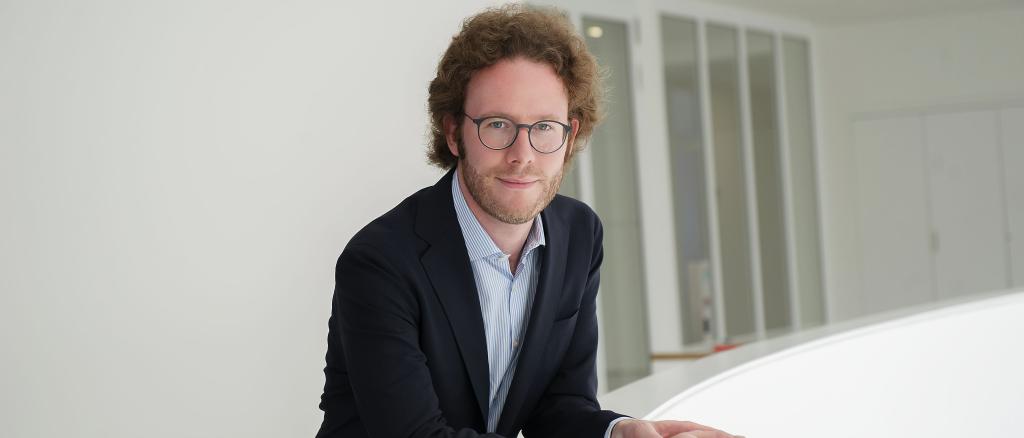
From 2008 to 2013 Leonhard Möckl studied chemistry and biochemistry at LMU, a university in Munich. Parallel to obtaining a master’s degree he began work on his Ph.D. in the group headed by Prof. Dr. Christoph Bräuchle, which was co-supervised by Prof. Dr. Thisbe K. Lindhorst (CAU Kiel). In 2015 he received a doctorate for his thesis on the biophysical relevance of the glycocalyx. He spent the next four years in a capacity as postdoctoral researcher with W. E. Moerner at Stanford University. While there, the natural scientist worked in close cooperation with the group headed by Prof. Carolyn Bertozzi, Ph.D., using super-high-resolution single-molecule microscopy to perform research on the functional role of the glycocalyx. Alongside receiving the Doctoral Thesis Prize from LMU Munich and Römer Prizes for his master’s thesis and Ph.D., the invitation to the Lindau Nobel Laureate Meeting 2022 – upon nomination by EKFS – was a very special distinction for the scientist.
Dr. Leonhard Möckl has been active as an independent group leader at the Max Planck Institute for the Science of Light (MPL) in Erlangen since 2020. That same year he received approval regarding the first and second application programme for funding by EKFS. The project being funded concerns the development of bis(acyl)phosphine oxides (BAPOs for short) as new types of active substances for cancer therapy. In their inactive form BAPOs are completely non-toxic. However, when light in a suitable wavelength is used to excite them, molecular free radicals are generated which are extremely toxic for cells. This deals with a double safeguard: BAPOs and light alone are harmless, but the combination of the two rapidly kills cells. In the course of the project Leonhard Möckl and his team were able to study a library of BAPO variants and optimize them in terms of their cell motility, as well as determine precise mechanisms of action (MOA) and excitation conditions. They were recently able to carry out their investigations for the first time in vivo which had heretofore been on a cell-based scale, and were equally able to fully confirm the efficacy there. “In other words, we’re at a point where we may hope that a new possibility for therapy could result here,” the research scientist reports.
The natural scientist draws his motivation on the one hand from the joy he takes in the realization that: “It is something special to grasp something for the first time,” says Möckl. Yet on the other, there is also the hope of improving the lives of human beings, whether this occurs in therapy and diagnosis or through the work on a better meshing of scientific research and the non-scientific public sphere. “I also studied philosophy and look at the situation from that standpoint with a worried eye that the sense of ‘otherness’ between scientists and laypersons tends to be increasing rather than decreasing, and not just since the coronavirus pandemic. It’s a concern of mine to address this development in an open, appreciative way and contribute toward getting people with different backgrounds to understand and acknowledge each other better,” he explains.
By the way, a perfect day off for Leonhard Möckl starts with sleeping in and a relaxed breakfast. Followed by music, because the chemist has a passion for playing piano and organ, and he loves to read in his spare time. “And if the day could have a bit more than 24 hours, I’d go hiking somewhere in the Franconian mountains and stop by at an inn. Then a meal in the evening with my family and friends – and no appointments before 9 the next day!” Möckl emphasizes.
Here you can find further information.